

Gaining traction
Chinese equipment makers are gaining traction overseas, pulled by the construction boom under way in Southeast Asia and South America, where new home and infrastructure building has lifted demand for affordable earth-moving gear.
In January-June, Sany's sales outside China rose by two-thirds from a year earlier, with growth in Asia Pacific up more than 90 percent. Same-town rival Zoomlion - whose annual sales of close to $8 billion make it the world's No 6 construction machinery maker - also made breakthroughs in Thailand, Chile, Costa Rica and Ecuador with its truck-mounted concrete pumps and concrete mixing plants.
"Emerging markets represent a good opportunity when domestic demand is weak," said Xu Mingle, an analyst with BOC International. "Even though export volumes remain small and cannot offset the slump at home, it at least cushions the blow."
While Caterpillar, Komatsu and Volvo AB remain dominant in most emerging economies, Chinese gear is making inroads. In 2011, XCMG group won a $745 million bid to supply cranes, concrete pumps, excavators and other equipment for a housing project in Venezuela that Caterpillar also bid for.
A year earlier, Liugong beat Caterpillar, Komatsu and South Korea's Hyundai Heavy Industries Co Ltd and Doosan Heavy Industries & Construction Co Ltd to provide wheel loaders and excavators for an afforestation campaign in Turkey, according to Liugong vice president Luo Guobing.
"Chinese companies are certainly not yet the largest in these markets, but they're getting really aggressive," said Raymond Tsang, a Shanghai-based partner at consultant Bain & Co.
Almost as good ... and cheaper
Encouraged by the rising popularity of Chinese equipment, Samcorp, a Hong Kong based dealer, started selling Zoomlion and Lonking Holdings Ltd's products in Peru three years ago. It recently opened another showroom in Columbia.
"People like these products," said company director Laurence Lam. "They are almost as good as those made by Western companies, but 30 percent cheaper."
Chinese equipment manufacturers are also gaining access and recognition in emerging markets as they have improved their component sourcing, according to Hermann Beck, an executive vice president at ZF Friedrichshafen AG. Besides the German parts maker, Chinese firms are turning to Eaton Corp and Cummins Inc for parts, he said.
There have also been offshore acquisitions. Over the last five years, Chinese firms have bought a variety of struggling European equipment makers, including Italy's CIFA Spa, Germany's Putzmeister Holding GmbH, and Poland's Huta Stalowa Wola, which has boosted access to Eastern Europe.
Industry executives caution that it will take time for Chinese companies to compete against global giants such as Caterpillar, which operates at the higher end of the value chain and books about 65 percent of its sales outside North America.
"They're going to have to learn how to be domestic players around the world, the way we did," said Ron DeFeo, Chairman and CEO of Terex Corp, which now increasingly faces Chinese companies in emerging markets.
"You can't just make it in China and ship it abroad."
 Hunan Gold Jewelry Culture Festival kicks off
Hunan Gold Jewelry Culture Festival kicks off
 World's first 1-liter car debuts in Beijing
World's first 1-liter car debuts in Beijing
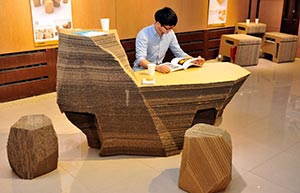 Paper-made furniture lights up art show
Paper-made furniture lights up art show
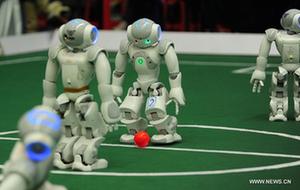 Robots kick off football match in Hefei
Robots kick off football match in Hefei
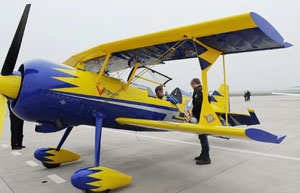 Aerobatic team prepare for Aviation Convention
Aerobatic team prepare for Aviation Convention
 China Suzhou Electronic Manufacturer Exposition kicks off
China Suzhou Electronic Manufacturer Exposition kicks off
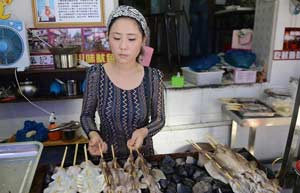 'Squid beauty' and her profitable BBQ store
'Squid beauty' and her profitable BBQ store
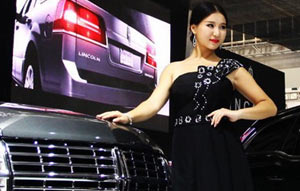 A day in the life of a car model
A day in the life of a car model